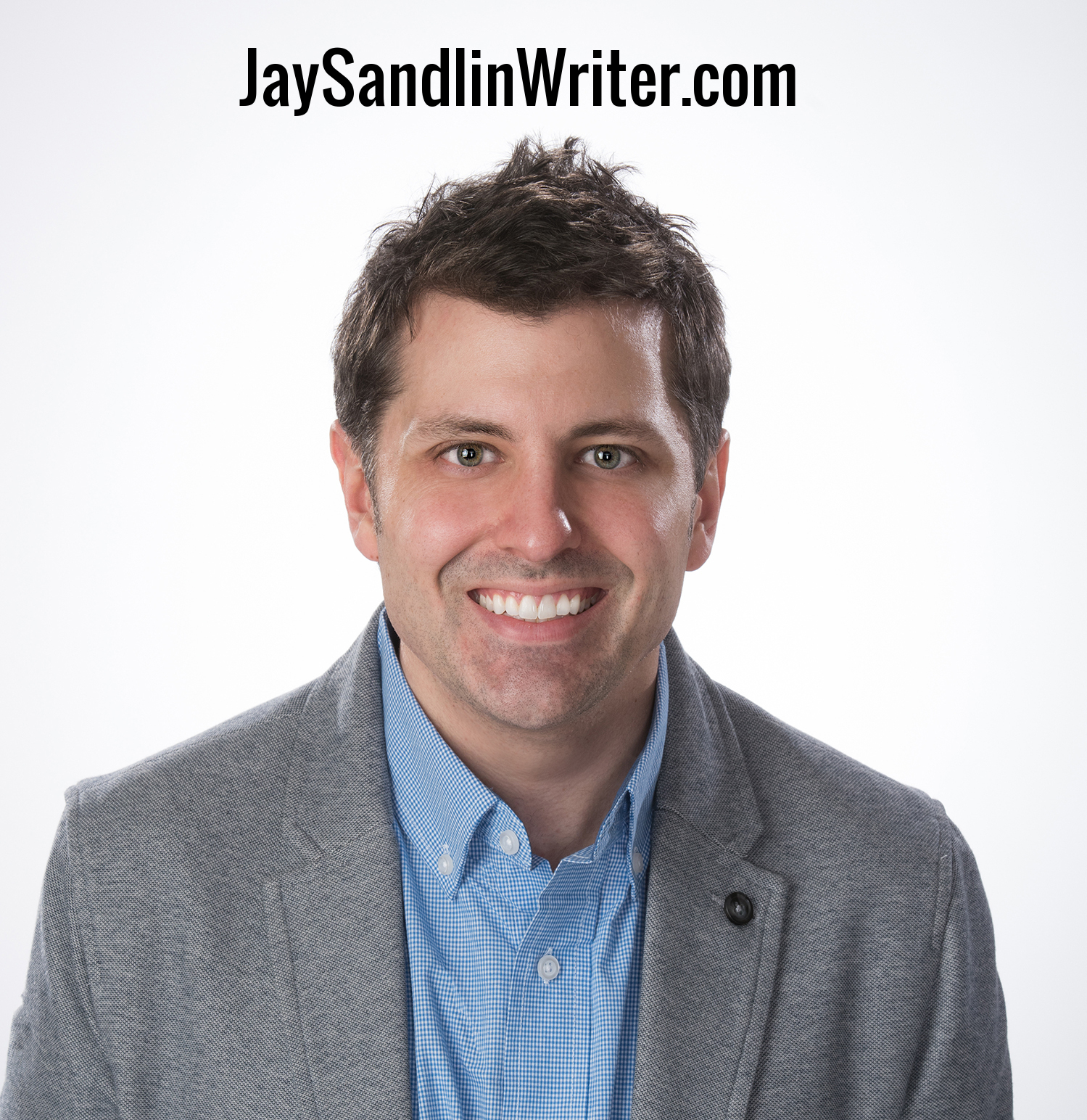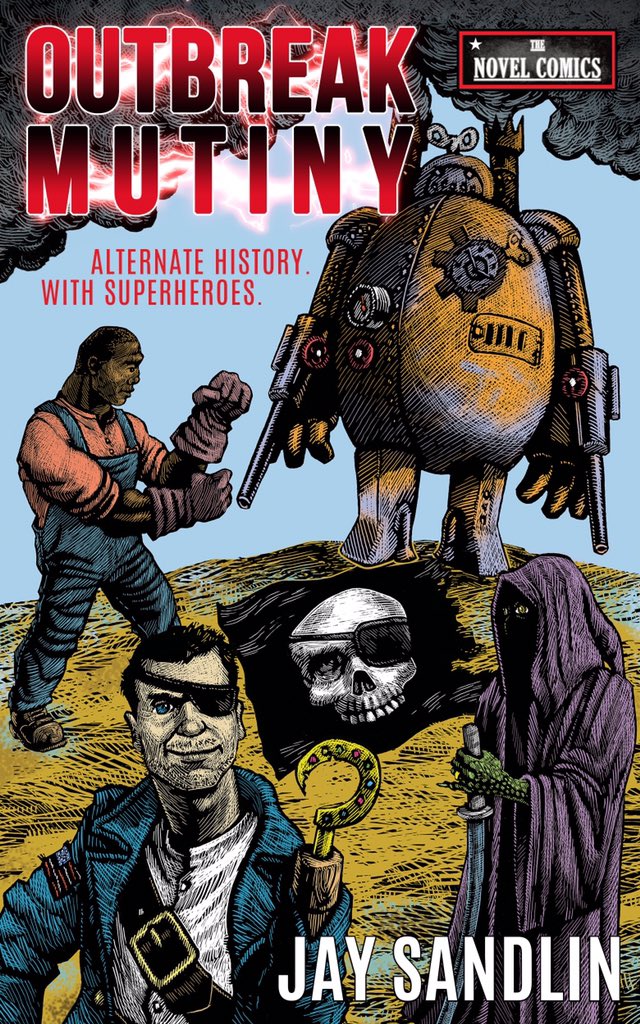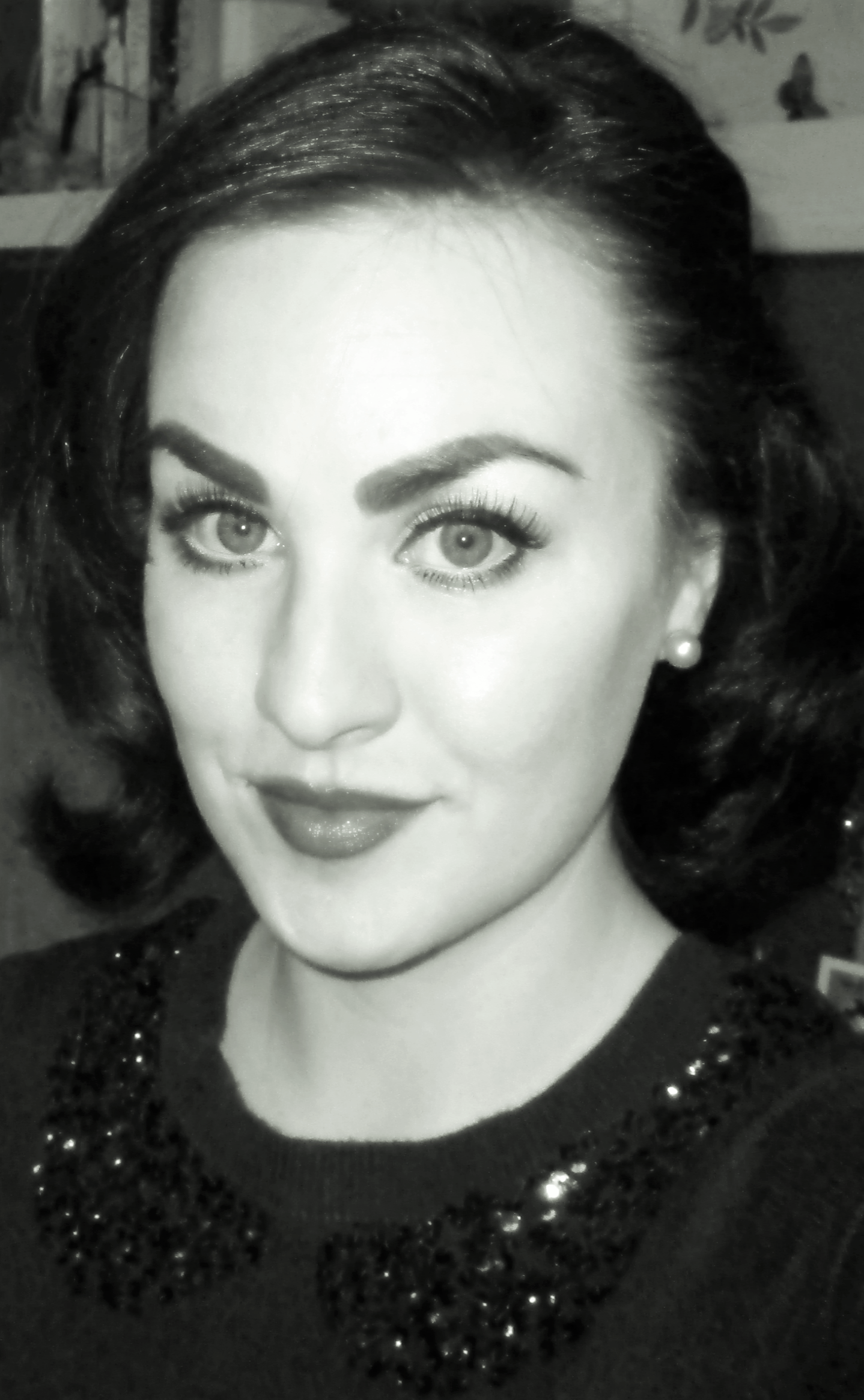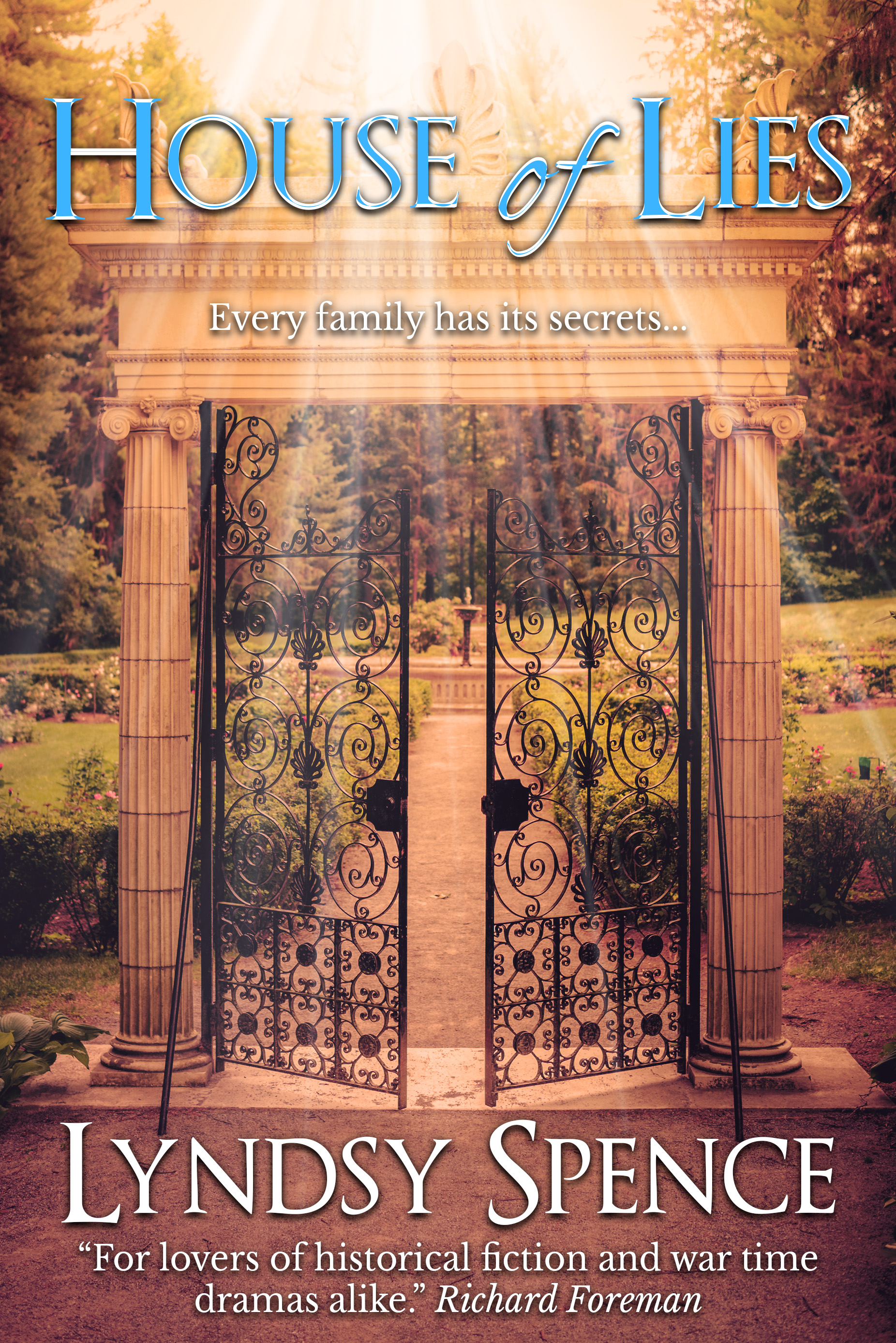
Today, as part of the blog tour for his book Outbreak Mutiny, I present to you, an interview with James Sandlin. I will be reviewing his book on 10th July, but for now, let’s get to know the author.
What inspired you to write your book?
When I was in the second grade we were assigned to write stories about Halloween. Every other kid wrote a paragraph or two about trick or treating or candy.
I wrote a two and a half page treatment about being teleported to a haunted graveyard and transformed into a bloodthirsty creature of the night by a cult of ghouls.
I always knew I was different.
While others were playing kickball or some other form of sports, I was hiding under the playground equipment reading Shadows of the Empire or another Sci-Fi novel. I began printing my own books before I was ten. I would have benefited from spellcheck then.
Then I stopped writing for years. I never produced a single word in high school, college, or into my adult life. I fell into a monotony of trying to be “normal”. I wanted to be successful in business and started my own insurance and financial services company when I was 24.
I have been successful but still felt the undeniable pull towards writing. I ignored the message from The Outsiders and did not “stay gold”. In June of 2016, I read a book on vacation about superheroes in the common world and decided I could mix my passion of history with the idea of superheroes being inserted into world events.
I began to write on the way back from that very trip and came up with the basic idea of Atlas, Okinawa Dragon, and the Reich facing off at Pearl Harbor.
Do you have a specific writing style?
Yes, I prefer to write in the first-person and follow one protagonist throughout the story. You will see the clear influence from comic books in my life during Outbreak Mutiny. I label my chapters as “issues” and my Volume series is a collection of issues. Just like comic books, each issue must stand on its own but still create a serialized story that flows together. At some points, my story will go to another time or place away from the main narrative or hero. That is when I swap to a third person perspective, like in the issues Sewer Storm or when I travel to another point in the hero’s journey in issue Abandon All Hope …
How did you come up with the title?
Trial and Error. I went through many titles. When this book began it was called The Losers and took place in 2016. I wrote a series background for this book when I realized the history I imagined was more interesting than the story I was writing at the time.
I re-titled the book History of Heroes or HoH and decided to focus on writing historical fiction with a mixture of superheroes.
My early feedback was vital, and I recommend any writer to make use of Betas. I was told the first draft of the book was tedious and bogged down with historical trivia. They were absolutely right. I scrapped months of work which amounted to over 100k words and completely started over.
In creating Outbreak Mutiny and The Novel Comics, I moved away from real history and created an alternate timeline where America had fallen in 1929 and was about to be choked to death by a new empire called The Reich.
Originally I just called them the Third Reich like our enemies in WWII. However, the Reich Ruler would never acknowledge any previous “Reichs” as being legitimate. He would be the sole ruler of the world! That led to the creation of the dystopic Remnant States as the successor to the downsized United States. This is where the story picks up in Issue 1, Paper Purgatory, ten years after the fall of the Old US.
What books have most influenced your life most?
All of the Star Wars Expanded Universe from the 90’s made me love to read and made me love Science Fiction. The Thrawn Trilogy by Timothy Zahn began my deep love of written fantasy. Outside of Star Wars I loved the Harry Potter series, Narnia, and many other authors.
Do you have any advice for other writers?
Writing is an evolutionary process. Your finished product will only vaguely resemble what you began with. Patience is the most important trait you can develop and it was so difficult for me to learn.
What genre do you consider your book?
My series is alternate history. With Superheroes. Broadly speaking it’s fantasy but I like to think it carries a hint of originality. The Novel Comics is like my DC or Marvel. It is a shared universe of characters and events that will encompass years of storytelling. This is only the beginning!
Do you ever experience writer’s block?
I don’t consider it writer’s block. If I reach a point where I can’t write anymore then it just means I have to walk away from my manuscript until I am in the right frame of mind to continue. An author does not create a story; the story is simply conveyed through his or her fingers. If you find that it’s not flowing, leave it and come back later.
Have you ever hated something you wrote?
Yes, and that led me to scrap months of work and over 100k words at one point in this process. I realized that my original antagonist was about as exciting as Holden Caulfield if he had stayed at school that weekend. My setting was also entirely wrong. I started fresh and kept the best elements of the previous draft to create something entirely new.
As a writer, you can’t be afraid to kill your investments and redirect your efforts. Even if it means more time.
What is your favourite theme/genre to write about?
My original characters are my favorite. In particular, I love Clockwork, Okinawa Dragon, Buccaneer, and Caliente Blu. I like to discover their story as I write it and ask questions like: “What happened to them in the past?” “How did they arrive at this stage in their lives?” “What drives this character/what do they want?” etc.
Where did your love of writing come from?
I would say it came from the love I gained for reading at a young age. I devoured books. As I read them, I felt myself grow sadder as I neared the end. It was like the ending of a friendship. That’s why I felt a love for series and stories that continued. I was in a relationship with the characters and wanted it to continue even after I turned the last page of a particular volume.
What was the hardest part of writing this book?
That one is easy. The hardest part was learning patience and taking my time to deliver a polished product. I felt so many temptations to call my book DONE before it was really ready. Patience was a foreign concept to me when I began, but I have since become more acquainted and I believe we will enjoy a long relationship together.
What did you enjoy most about writing this book?
I enjoyed the manifestation of the story. I don’t feel as if I wrote it at all, but that it was conveyed through me. It’s like it already existed and I simply had to discover it. Does a writer invent or does a writer discover? I honestly cannot say.
Do you write every single day?
I would say I write the same way I watch Netflix. I binge on writing for several days or weeks and then walk away and experience life without writing or creating. This helps me gain a fresh perspective and distance from the story improves my objectivity regarding its quality. Elements that seemed strong at first grow stale after the manuscript has time to breathe.
Which writers inspire you?
Timothy Zahn, Dan Brown, James Patterson, Stephen King, Peter Clines, Jim Bernheimer, J.K. Rowling, H.G. Wells, Edgar Rice Burroughs, Mary Shelley and more!
What are you working on at the minute?
I am actively promoting OUTBREAK MUTINY with all my might. As an Indie Author you have to fight for every download or purchase of your book. I am also planning the bullet points of the next book. I know where I want to begin and where I want to end. The path to arrive there, however, has yet to reveal itself.
I am also planning to write a short story in between about Caliente Blu, the heroine from Issue 0 of OUTBREAK MUTINY. She has received such an overwhelmingly positive response that I want to write a story that takes place ten or fifteen years before her appearance in OM as a young Outbreak Baby gaining her superpowers and fighting for the freedom of slaves in Cuba. And, of course, forming her super team “La Escalera” the female group of Latina Liberators!
What’s is your latest book about?

OUTBREAK MUTINY is alternate history. With Superheroes. It takes place in a world where superpowers are real and an entire generation known as Outbreak Babies manifest their abilities after suffering a severe injury or trauma. In this world, superpowers are treated like a resource and those who possess them are in demand by the powerful.
The Reich has taken over the world after Germany pledged their allegiance to the most powerful of all Outbreak Babies, The Reichsmensch. He governs a caste society ruled by Warlords in conquered territories. Those who join the Reich attend Acolyte Academies where they seek the honor of earning a Warlord Trial.
Life is hard for those living outside the Reich in the Remnant States. The map I provided should show the new boundaries of the land known as the Old US. When Issue 1 begins, we find the stragglers in the Remnant just struggling to survive as a Virus breaks out in the Chicago Buffer Zone.
In this world, the choice is clear: You Die Free, or Live in Chains. Which will you choose?
Thanks for the interview, James, and best of luck with the book.










![711536_10151234049863580_1527978509_n[1]](https://rosemariecawkwell.files.wordpress.com/2015/03/711536_10151234049863580_1527978509_n1.jpg)